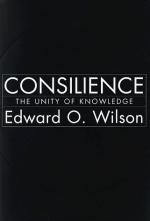
|
| Name: _________________________ | Period: ___________________ |
This test consists of 15 multiple choice questions and 5 short answer questions.
Multiple Choice Questions
1. What were ethics constructed around, according to Wilson?
(a) The notion that justice is independent.
(b) The notion that human beings can be perfected.
(c) The notion that human acts have consequences.
(d) The notion that the gods observe human actions.
2. How much will sea levels theoretically rise if the ice caps melt?
(a) 30 cm.
(b) 120 cm.
(c) 60 cm.
(d) 90 cm.
3. What is the problem with anthropology, in Edmund Wilson's estimation?
(a) It is not funded well enough.
(b) It is divided into two irreconcilable branches, neither of which resolve the question of diversity.
(c) It is dominated by scientists who deny anthropology's genetic aspect.
(d) It is run by social scientists who attribute everything to genetics.
4. What does natural consilience connect?
(a) Heredity and culture.
(b) Language and culture.
(c) Time and change.
(d) Language and genetics.
5. Wilson defines culture in terms of what?
(a) Environment.
(b) Religion.
(c) Genes.
(d) Language.
6. What does Edmund Wilson say the arts ultimately create?
(a) Religion.
(b) Consilience.
(c) Science.
(d) Rituals and consistency.
7. What explanation does Wilson offer for incest taboos?
(a) Incest relationships create genetic defects.
(b) Incest predisposes cultures to avoid war.
(c) Incest undermines primogeniture.
(d) Incest creates unrest in a culture.
8. What are epigenetic rules?
(a) The language in which culture expresses itself.
(b) The cultural effect on genetic expression.
(c) Influences that affect the expression of genes.
(d) The process of selecting which genes are most desirable in an environment.
9. How do widely distributed cultural traits affect genes?
(a) They bolster the genes that predispose them.
(b) They limit the expression of genes responsible for less-widely distributed cultural traits.
(c) They allow the genes that predispose them to evolve.
(d) They prevent the spread of other cultural traits and other genes.
10. What does the concept of God do, in Edmund Wilson's account?
(a) Clarify man's relationship with things whose origins are inexplicable.
(b) Unify the sciences and humanities.
(c) Open the mind to what is beyond it.
(d) Ground the mind in its source.
11. What do modern technologies give humans the ability to choose?
(a) The direction of human evolution.
(b) The shape of their children's heads.
(c) The genetic superiority of a race.
(d) The color of children's skin.
12. How does postmodern influence portray existence?
(a) As communal.
(b) As chaotic.
(c) As interdependent.
(d) As individual.
13. What cannot be expressed by brain imaging, in Edmund Wilson's account?
(a) Reactions to art.
(b) Traits responsible for art.
(c) The locus of artistic appreciation.
(d) The genetic predisposition toward artistic work.
14. How does Transcendentalism justify war, in Edmund Wilson's account?
(a) Each side describes their cause as sacred.
(b) Each side refers to nature for their authority to fight.
(c) Each side relies on unifying logic.
(d) Each side poses as protecting an individual's rights.
15. What does Wilson offer as evidence of cross-cultural epi-genetic rules?
(a) Myths.
(b) Councils.
(c) Regional cuisine.
(d) Mating rituals.
Short Answer Questions
1. What does natural selection provide for a species?
2. What were the first artistic images of animals intended to evoke, according to Wilson?
3. What is the traditional view of art?
4. What do the arts need science for?
5. What are social scientists lacking, according to Wilson?
|
This section contains 550 words (approx. 2 pages at 300 words per page) |

|




